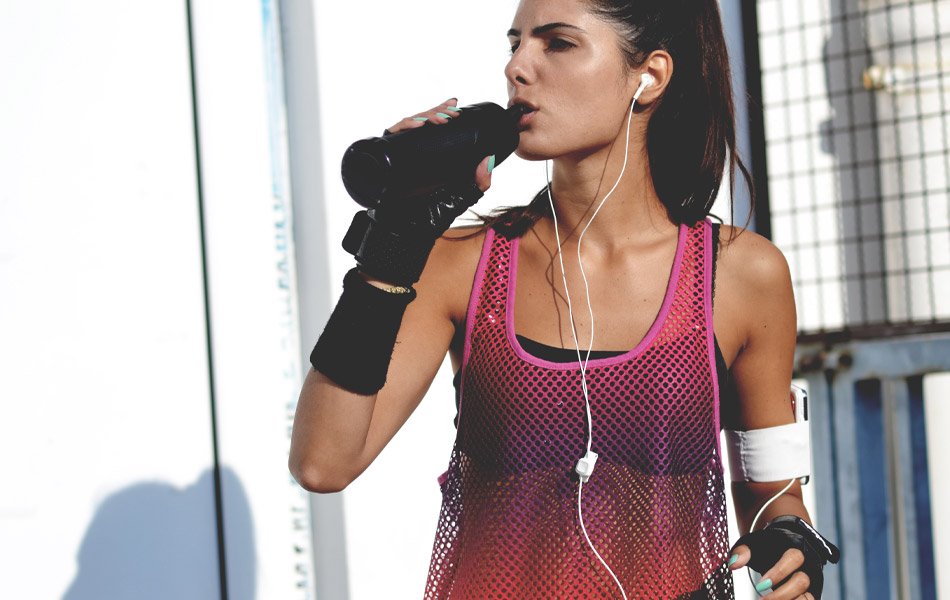All About Water Weight (and How to Lose Water Weight)

Hey Angels and Alphas,
Have you ever heard of water weight? If you have, it’s most likely been in a situation where someone was talking about losing weight quickly.
But water weight, and water retention, are concepts that are much bigger than that and play an integral role in the way your body functions. Today, we’re going to explore what causes water retention, how you can check if you’re losing fat (and not just water,) and how to lose water weight ASAP.
What’s water weight?
The human body is about 60 percent water, basically meaning you yourself are mostly water.
But many people worry about the extra water that gets stored in the body, especially bodybuilders and professional athletes who want to reach a specific weight category.
Your “water weight” depends on how much water you drink during the day as well as one other factor – how high the sodium content in your body is. Therefore, one of the easiest and cheapest ways to avoid water weight loss is to limit the number of sodium-rich foods you consume.
(Excess water retention, or edema for short, is a completely non-related issue. It’s usually harmless.)
If you are asking yourself, “How do I lose my water weight overnight?,” you should limit your carbohydrate intake to a minimum of less than 50 grams per day. Reducing carbohydrate intake is the quickest way to reduce the amount of glycogen the body stores, which results in the reduction of water weight.
For every single gram of glycogen your body stores, 3-4 grams of water are usually stored with it. This explains why some people experience almost immediate weight loss when they switch to a low-carb diet. Not to mention, carbs can raise insulin, basically skyrocketing sodium retention and reabsorption of water in the kidneys.
Before we get into tips and tricks to help you lose water weight, it is important to understand what water retention is and what causes it.
Water retention causes a variety of health problems, such as diabetes, heart disease, high blood pressure, high blood pressure, obesity and much more.
It depletes the glycogen stored in the liver and muscles and removes the water that clings to it, leading to weight loss. This, in turn, means less water is retained, and you are likely to lose the majority of it. In fact, you should drink more water and make sure you stay hydrated, which will help you lose more of your water weight.
You may want to try the Waterfall Diet to find out if, for example, you have an allergy that causes you to retain fluid. No matter what you do as you lose your water weight, you shouldn’t be trying to dehydrate yourself by not drinking enough water.
If you have already made lifestyle changes to lose it, you can also try using various supplements to eliminate unwanted water weight. Water weight is really a problem for both weight loss and weight gain, and every person has different ways of dealing with it.
If you’re experiencing a water retention problem that seems severe or pops up suddenly, the best advice anyone could give you is to check in with your doctor. In some rare cases, excess water retention can be caused by serious underlining conditions.
But if you’re retaining weight, the best way to reduce that excess water is to identify why it’s there and deal with the cause. It may be salt intake, inactivity, lack of electrolytes, too much stress, or any of a hundred other reasons.
In addition to working out more, sleeping more, stressing less, and drinking more water, there are a couple of strategies you can use to see faster results when you want to lose water weight. These include:
- Go to a sauna.
Sitting in a steam bath or sauna is an effective way to lose water weight because you are sitting in such a hot environment and that means you lose water. Water weight is one of the first things that comes with fat, so you can sweat it out in the sauna while you exercise.
- Take a magnesium supplement.
Magnesium is a vital electrolyte and mineral, and it’s gaining massive popularity in the health and fitness performance world. By playing a key role in over 600 bodily processes, studies now show us that it can help reduce water weight by managing other electrolytes such as sodium and potassium (that control your body’s water balance.)
- Try a caffeine supplement (or just drink tea/coffee.)
Caffeine and beverages that contain it, such as tea and coffee, have a diuretic effect on the body and may actually help you reduce your water weight. They have been shown in studies to cause short-term water output and therefore slightly decrease water weight. That being said, even though caffeine has a mild diuretic effect, it doesn’t lead to dehydration in habitual drinkers.





